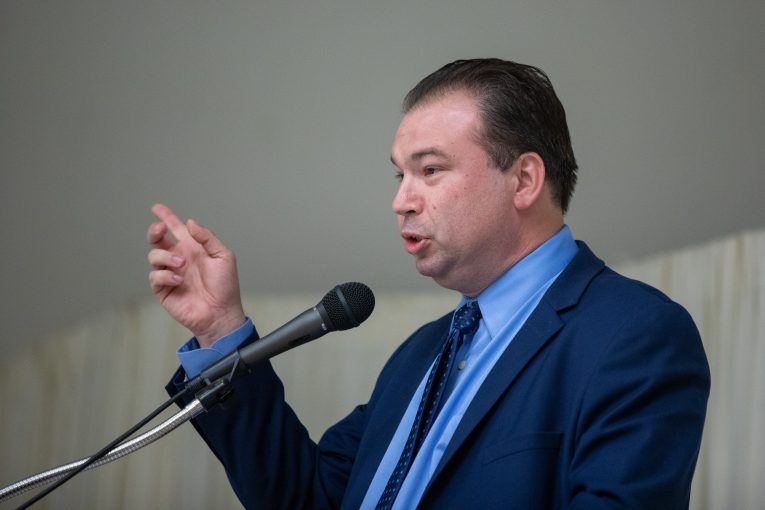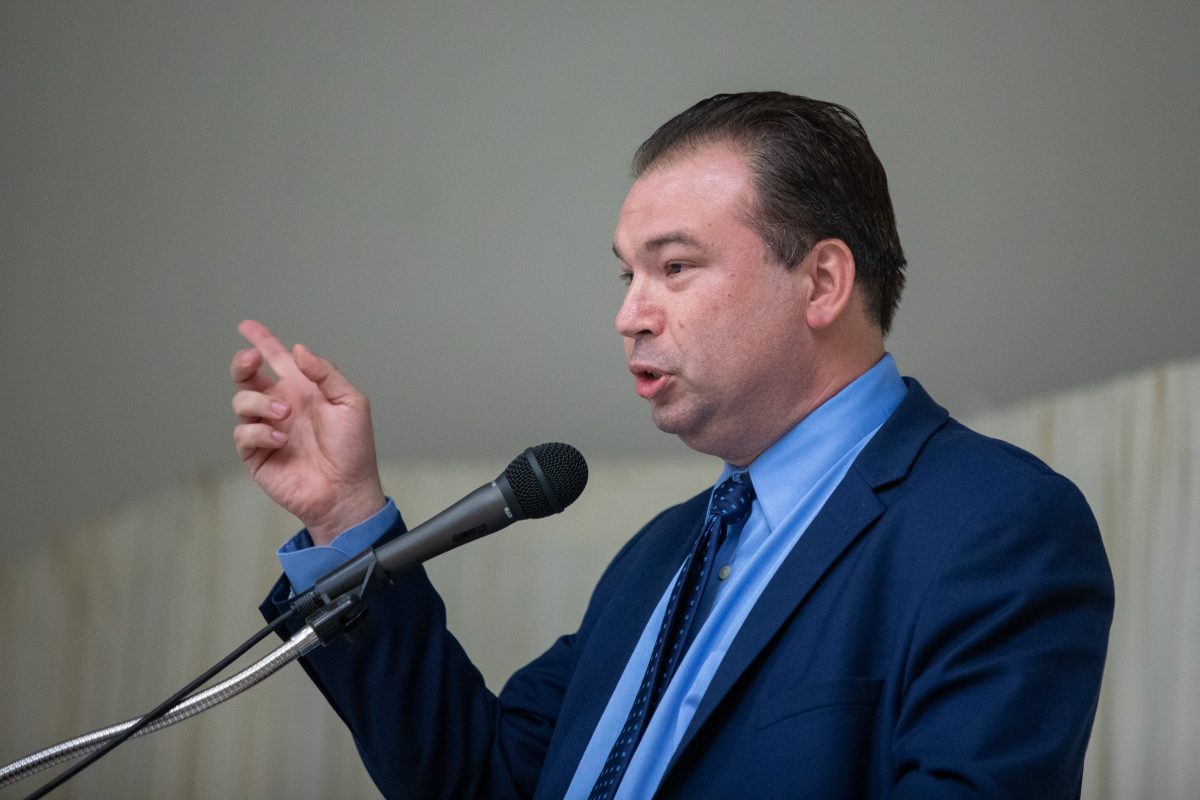

By Jeffrey Deskovic
“Looking back” will feature reprints of articles that Jeff previously wrote while a columnist at The Westchester Guardian, which encompass topics that are applicable here in CA as well as across the country and not simply applicable to NY.
On March 23, 2010, the Supreme Court agreed to hear Connick v. Thompson, a case with widespread implications for victims of wrongful convictions and the rights of all citizens to not be framed.
John Thompson spent eighteen years in a Louisiana prison, fourteen of them on death row. He had been wrongfully convicted of burglary and was subsequently charged with a murder he did not commit. The trial judge ruled prosecutors could cross-examine Thompson about the burglary conviction if he took the witness stand in his own defense, so he did not testify and was convicted of murder and sentenced to death.
Orleans Parish prosecutors illegally withheld a laboratory report that proved the murderer had a different blood type. The report surfaced a few weeks before Thompson’s scheduled execution. His death sentence was stayed, the underlying robbery conviction overturned, and he was granted a new trial at which he testified in his own defense. The jury acquitted him of murder within an hour.
Thompson then successfully sued the Orleans Parish D.A.’s office, then headed by Harry Connick. Under the law, individual prosecutors enjoy absolute immunity from personal liability for wrongs committed while discharging the prosecutorial function, but government agencies are liable for general policies which violate civil rights. Because Thompson had no legal recourse against the individual prosecutors who framed him, he sued the Orleans Parish D.A.’s office as a whole, and argued it maintained a systematic policy of illegally withholding exculpatory evidence from defense attorneys, and that burying the lab report in his case was but part of a larger pattern.
At trial, Thompson proved not one, but two prosecutors failed to turn over the exculpatory lab report, and four other prosecutors knew the report had been illegally buried but failed to come forward, despite their ethical duty to do so. Thompson’s experience was not unique. The Louisiana Supreme Court overturned seven other convictions obtained by Connick’s office because prosecutors withheld exculpatory information they were obliged to turn over to defense attorneys.
The civil jury awarded Thompson $14 million in damages for malicious prosecution and violation of his civil rights.
The Orleans Parish D.A. who succeeded Connick, Leon Cannizzaro, appealed the verdict and argued his office is immune from civil rights liability. Cannizzaro pointed to the deathbed confession by prosecutor, Gerry Deegan, as evidence that misconduct was the work of an isolated, rogue prosecutor, not a widespread policy of his office.
Cannizzaro also made the typical “floodgates” argument that, if the appellate courts permit Thompson’s verdict to stand, the floodgates will open and prosecutors across the nation will be inundated with civil actions by defendants ultimately vindicated of wrongdoing.
Federal appeals are heard by a panel of three judges, but, in rare cases, the entire court will rehear an appeal. After Cannizzaro lost before a three-judge panel, he persuaded the entire federal Fifth Circuit Court of Appeals to rehear his appeal en banc. In a highly unusual outcome, the court split 8-8, and the U.S. Supreme Court agreed to review Thompson’s case.
Immunity from civil actions fosters widespread prosecutorial misconduct because prosecutors know they can break the law with impunity. Immunity means prosecutors pay no price for failing to turn over exculpatory evidence, or obtaining convictions with perjured testimony or shoddy forensic evidence or unreliable expert testimony and the like.
Every instance of prosecutorial misconduct harms society in several ways. It undermines the public’s confidence in the accuracy and reliability of the criminal justice system, and wrongful convictions mean the wrong man is punished while the real perpetrator gets away with the crime and remains at large to victimize others.
If the Supreme Court overturns Thompson’s verdict, then federal legislation must be passed to eliminate prosecutorial immunity and allow lawsuits against errant prosecutors. Despite Cannizzaro’s claim that Deegan was the exception, it is clear Connick fostered a culture of corruption in his office because so many prosecutors knew the lab report was buried but did not speak up, a scenario made possible because Connick failed to properly train and supervise his prosecutors.
Cannizzaro also argued that Thompson’s damage award is “catastrophic.” This demeans the extent and seriousness of Thompson’s suffering nearly two decades in prison after not one but two wrongful convictions. Imagine your day-to-day life on death row, not knowing whether, at any minute, you might be removed to the execution chamber and put to death. The extensive psychological and physical harm Thompson suffered is incalculable. Only someone who has undergone his ordeal can appreciate the extent of the trauma and reputational damage he endured, much less his lost earning opportunities and future expenses for mental health care.
The jury award is not only reasonable, it is important because seven-figure awards send a clear message to all potentially errant prosecutors they convict the innocent at their peril. Prosecutors should not enjoy any greater immunity for wrongful conduct which harms the innocent than others in law enforcement like police officers. Prosecutors occupy a unique position of trust and awesome power. They must be held accountable for abuse of that trust and power.
It will be interesting to see how our conservative Supreme Court rules, and in particular, the position taken by its newest member, Sonya Sotomayor, a former prosecutor. Hopefully, the high court will not make Swiss cheese out of our civil rights and will uphold Thompson’s verdict.
Jeffrey Deskovic, Esq, MA, is an internationally recognized wrongful conviction expert and founder of The Jeffrey Deskovic Foundation for Justice, which has freed 9 wrongfully convicted people and helped pass 3 laws aimed at preventing wrongful conviction. Jeff is an advisory board member of It Could Happen To You, which has chapters in CA, NY, and PA. He serves on the Global Advisory Council for Restorative Justice International, and is a sometimes co-host and co-producer of the show, “360 Degrees of Success.” Jeff was exonerated after 16 years in prison-from age 17-32- before DNA exonerated him and identified the actual perpetrator. A short documentary about his life is entitled “Conviction“, and episode 1 of his story in Virtual Reality is called, “Once Upon A Time In Peekskill“. Jeff has a Masters Degree from the John Jay College of Criminal Justice, with his thesis written on wrongful conviction causes and reforms needed to address them, and a law degree from the Elisabeth Haub School of Law at Pace University. Jeff is now a practicing attorney.
